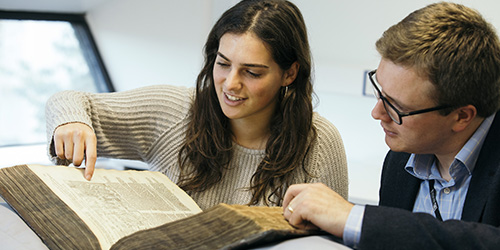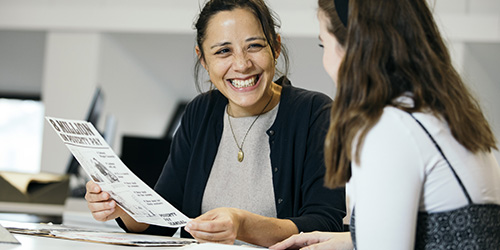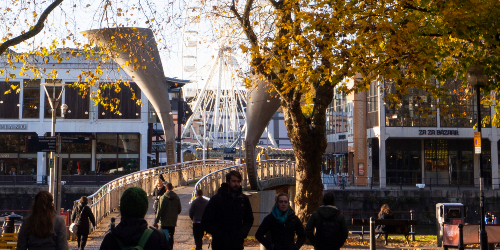History
Undertake your own historical research, take a global perspective on historical and contemporary issues, and understand the past on its own terms as a crucial way to understand the present.
Research experts
Learn from leading researchers and public-facing academics in our department.
Follow your interests
Our degrees let you pursue your own passions. You can cover a wide chronological and geographical breadth, from ancient British Paganism to the geopolitics of modern Antarctica.
Vibrant community
To expand your historical studies you can attend a variety of exciting events, such as the History Showcase lunchtime lecture series, research seminars, and fascinating talks with guest lecturers.
History courses for 2026
Single Honours
Joint Honours
History at Bristol
Taught by renowned world-leading experts, covering all seven continents and spanning over 1500 years, our History courses offer broad and inclusive curricula that celebrate innovative and interesting topics and introduce you to the major themes in medieval, early modern, modern and contemporary history.
Visit the Department of History for more information on the department, our research and teaching staff.
The University is an institution of academic excellence, with staff who encourage you to grow as a person and pursue your own interests. Being able to choose my own modules and investigate areas of history that I have never considered before has been both challenging and incredibly rewarding.
Career prospects

Our teaching connects the past with the most pressing issues facing humanity while training you to apply the valuable historical skills of interpreting evidence, understanding context, constructing robust analyses, and communicating your ideas with others. Varied assessments help you practice these skills, design projects and develop the persuasive storytelling that means our history graduates can fulfil their potential throughout future careers in government, public organisations, creative industries, education, business, law and beyond.
Course structure

Our commitment to choice in every year of study allows you to make the most of the our expertise. You’ll trace your own path through a programme that blends the latest research on historical debates with new social, cultural, political, environmental and global histories that Bristol academics are pioneering.
Our joint honours programmes have been specifically designed to combine core skills with optionality to ensure that students can make the most of interdisciplinary study.
In the final year, students produce a 10,000-word dissertation based on extensive engagement with primary sources. You might choose to make this practice-based, combining a written report with a creative or public-facing output such as a walking tour, exhibition or podcast.
In recent years, first-year optional units have included:
- ‘Fight the Power': Democracy and Protest
- Slavery
- Modern Revolutions
- Gender in the Modern World
- The American Century
- War and Society
Recent second and third-year specialist units include:
- The F Word: Understanding Italian Fascism Then and Now
- Political Culture and Communication in Britain, 1867-1939
- Race and Resistance in South Africa
- Under the Covers: Sex and Modern British Print Culture
- The Norman Conquest
- Kingship and Crisis during the Wars of the Roses
- Teenage Kicks: Youth and Subcultures in Britain since 1918
- Iran, 1901-51: Oil, Racial Capitalism, and Decolonisation
Critical and progressive

The city of Bristol has a long and complex history, stretching back over 1,000 years. Units across our programmes encourage students to explore the how the city has been shaped by, among other things, the transatlantic slave trade, political protest, technological advances, migration, and global conflicts.
Beyond the classroom there are numerous opportunities to develop your interests, working closely with other students as well as academic staff. We have an active History Society that hosts academic and social events throughout the year as well as a student-run magazine, The Bristorian.
